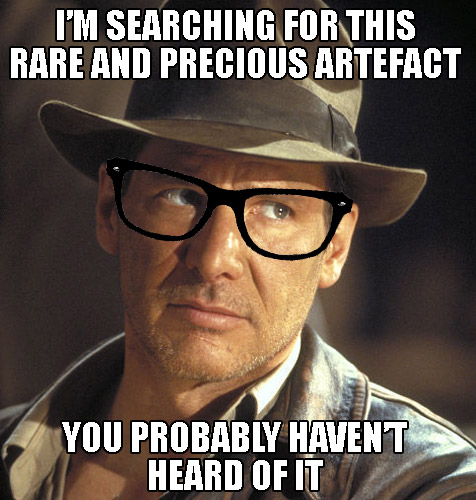by Midnight Freemason Contributor
Bro. Adam Thayer
 This piece, is about Masonic Education, and the dangers it can pose. To start off, though, I don’t want to talk about Masonry. Instead, I’d like to tell you a story.
This piece, is about Masonic Education, and the dangers it can pose. To start off, though, I don’t want to talk about Masonry. Instead, I’d like to tell you a story.
There was once a young boy in Greece, walking through the mountains. While he was wandering, he stumbled across a large stone that was set upright, and marked with what appeared to be an ancient inscription. He rushed home and told his father, who called up a famous archaeologist from the neighboring town.
The archaeologist gathered some tools and equipment, and had the boy take him to the stone. It being in a remote location, the hike was difficult, and through rocky terrain, but they finally arrived at their destination. The archaeologist took a cursory look at the stone and was overcome with joy! The script on it was one he recognized immediately: it was an ancient form of Greek, and he happened to be the world’s leading expert on the rare dialect. Any new examples of this writing would greatly expand the archaeological field’s understanding, and help his study of the language immensely.
The archaeologist got to work scraping off the moss and dirt that had collected on the stone over the years. After many hours of work, at last the stone stood naked before him, and he was able to analyze the writing more closely. The writing was large, and contained very few words, which, combined with the situation of the stone, led him to believe that it was an ancient grave stone. He settled in to interpreting the writing, pulling out his notes, other examples of the writing, an ancient Greek dictionary which he had written, and numerous grammatical studies. Several times he burst out with excitement over the hours, and finally, as the sun was setting, he had finished what he believed to be an accurate translation.
 “My boy,” he said, “you may not understand the importance of what you have found, but I do! This grave stone says ‘A warning to all who pass me by: tread lightly, for the ground be unstable.’ We use a very similar saying now, that says ‘Remember me as you pass by, as you are now, so once was I.’ This stone helps link our ancient Greek brothers to our culture today, and will help close so many gaps in our understanding! Thank you, my boy, thank you so much for leading me to your discovery! I can’t wait to get my whole team up here to do a more thorough excavation.”
“My boy,” he said, “you may not understand the importance of what you have found, but I do! This grave stone says ‘A warning to all who pass me by: tread lightly, for the ground be unstable.’ We use a very similar saying now, that says ‘Remember me as you pass by, as you are now, so once was I.’ This stone helps link our ancient Greek brothers to our culture today, and will help close so many gaps in our understanding! Thank you, my boy, thank you so much for leading me to your discovery! I can’t wait to get my whole team up here to do a more thorough excavation.”
So, the boy and the archaeologist returned home. The archaeologist spent the next several weeks assembling the equipment he would need, and the best excavation team in the country. When they were finally prepared, they transported the large and fragile equipment to the site by helicopter, and took the basic supplies by donkey. The helicopter landed with the archaeologist, and soon the donkeys began to arrive, carrying their loads. The archaeologist stood back, and surveyed with pride the massive undertaking that was about to commence. He took a look at the ancient burial sign and smiled at all he hoped to accomplish and learn.
Just then, the ground began to violently tremble. The donkeys started to act strange. Deep noises could be heard from under the ground, and, in one horrific instant, the whole surface of the ground they were standing on gave way, and the whole team, all of the equipment, the donkeys, the helicopter, and the archaeologist were all swallowed up by the earth. In his excitement, the archaeologist had failed to heed the warning of the sign, that the ground was prone to collapse.
Our ancient brethren have left us a wealth of knowledge and instruction, but if we only examine the surface words and not the underlying meaning, we too are at risk of falling into a pit of confusion and despair. Don’t allow yourselves to fall into the trap of believing that your cursory understanding of a lesson is the right one, or even the only meaning available. And most importantly, never forget the true meaning of the words of the inscription: A warning to all who pass me by: tread lightly, for the ground be unstable.


Great article!
ReplyDeleteVery nice!
ReplyDelete